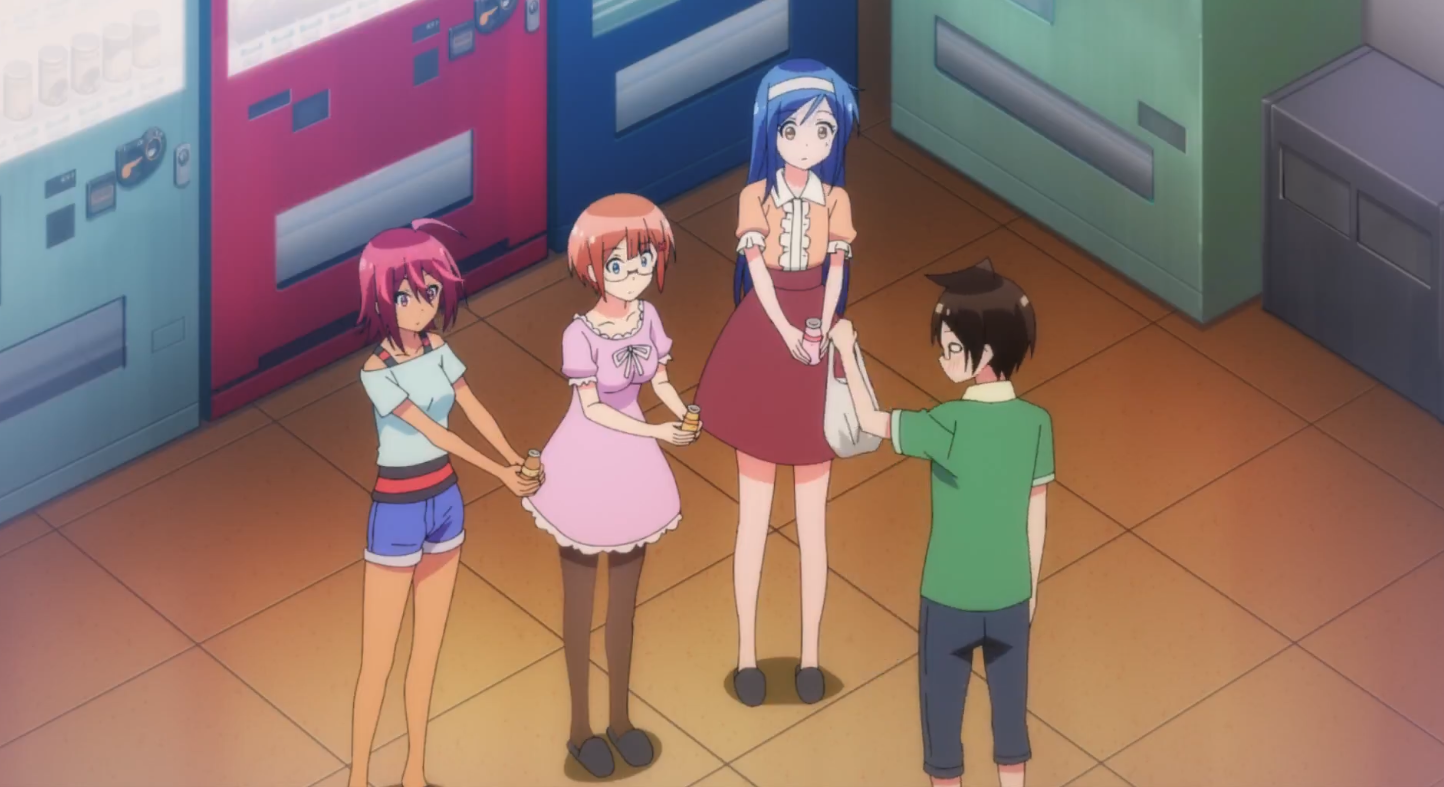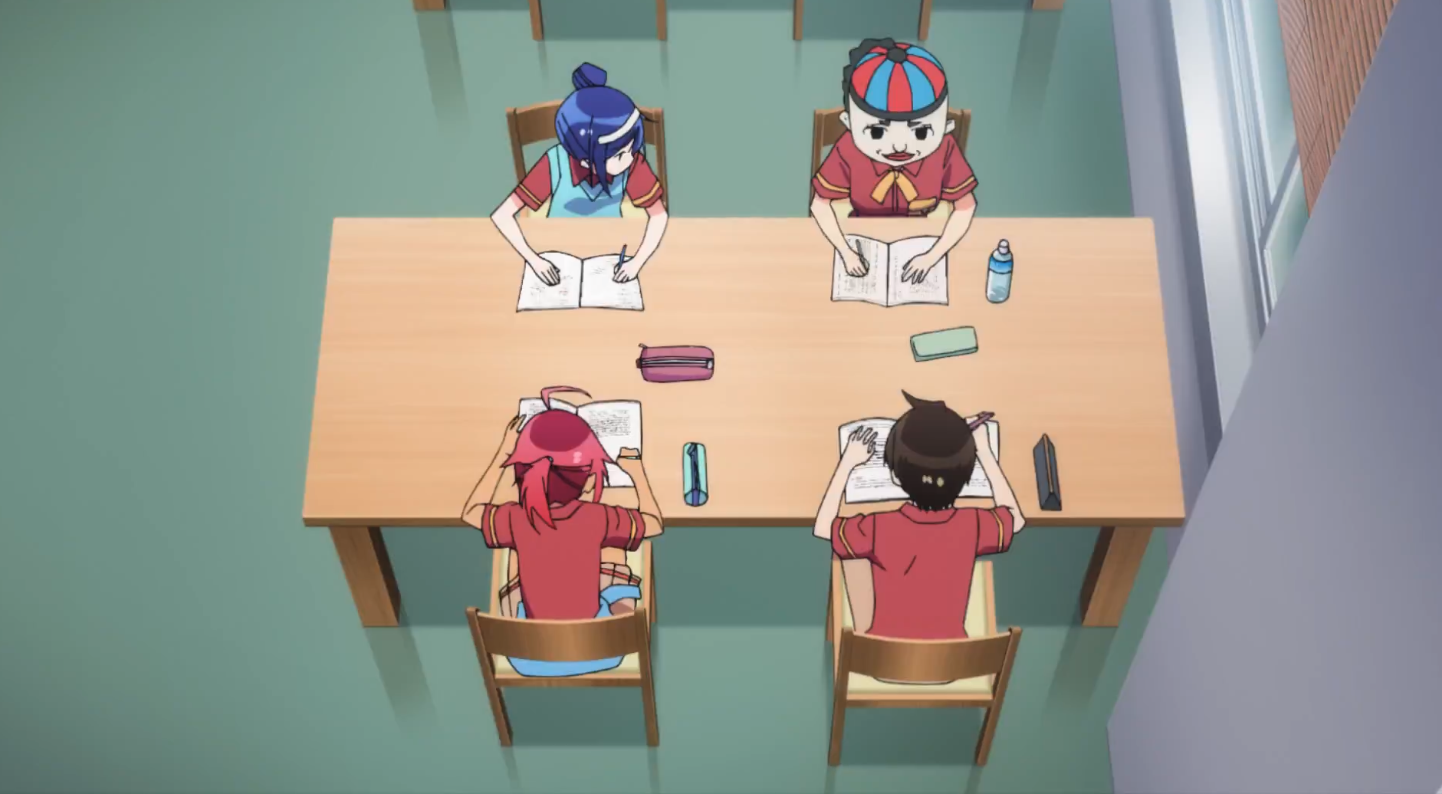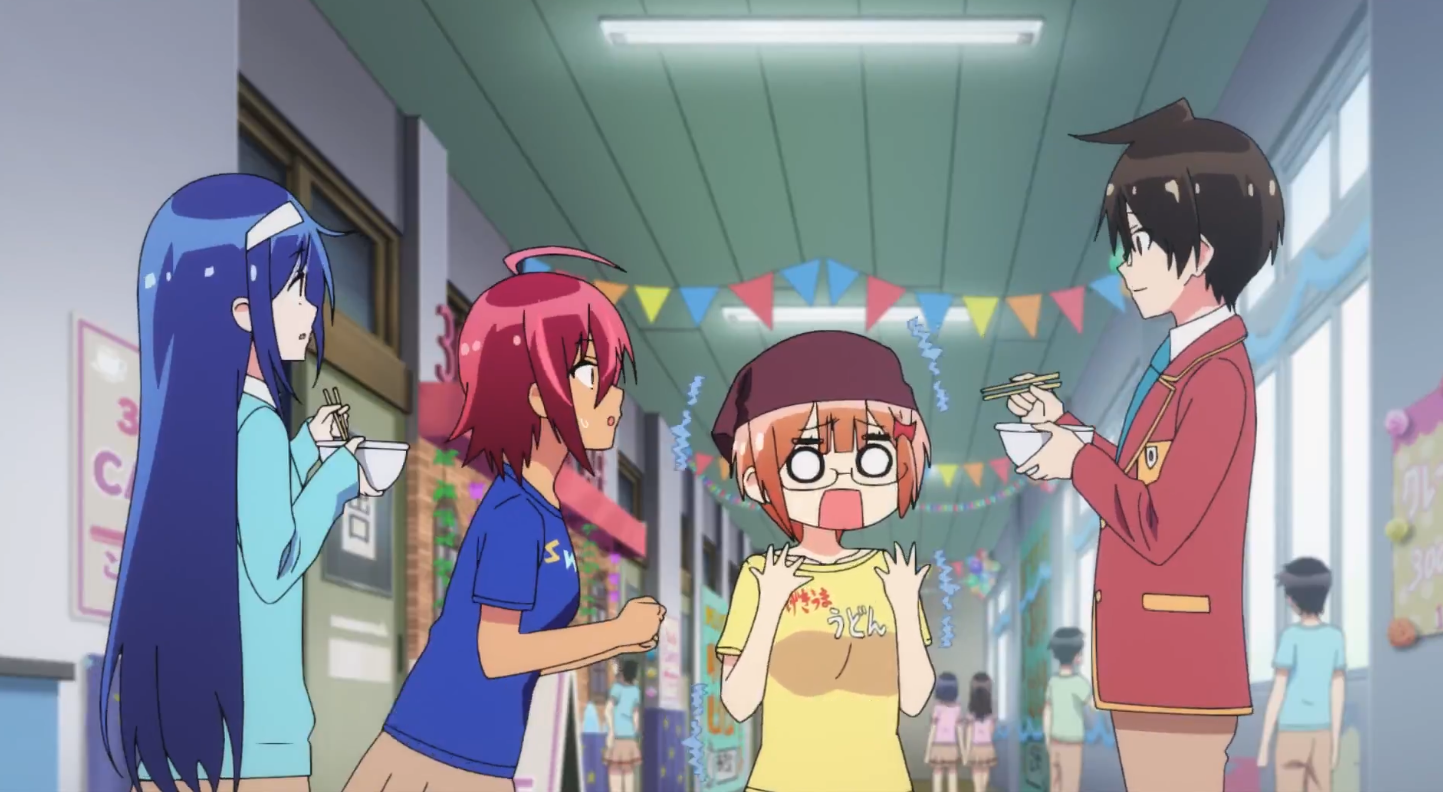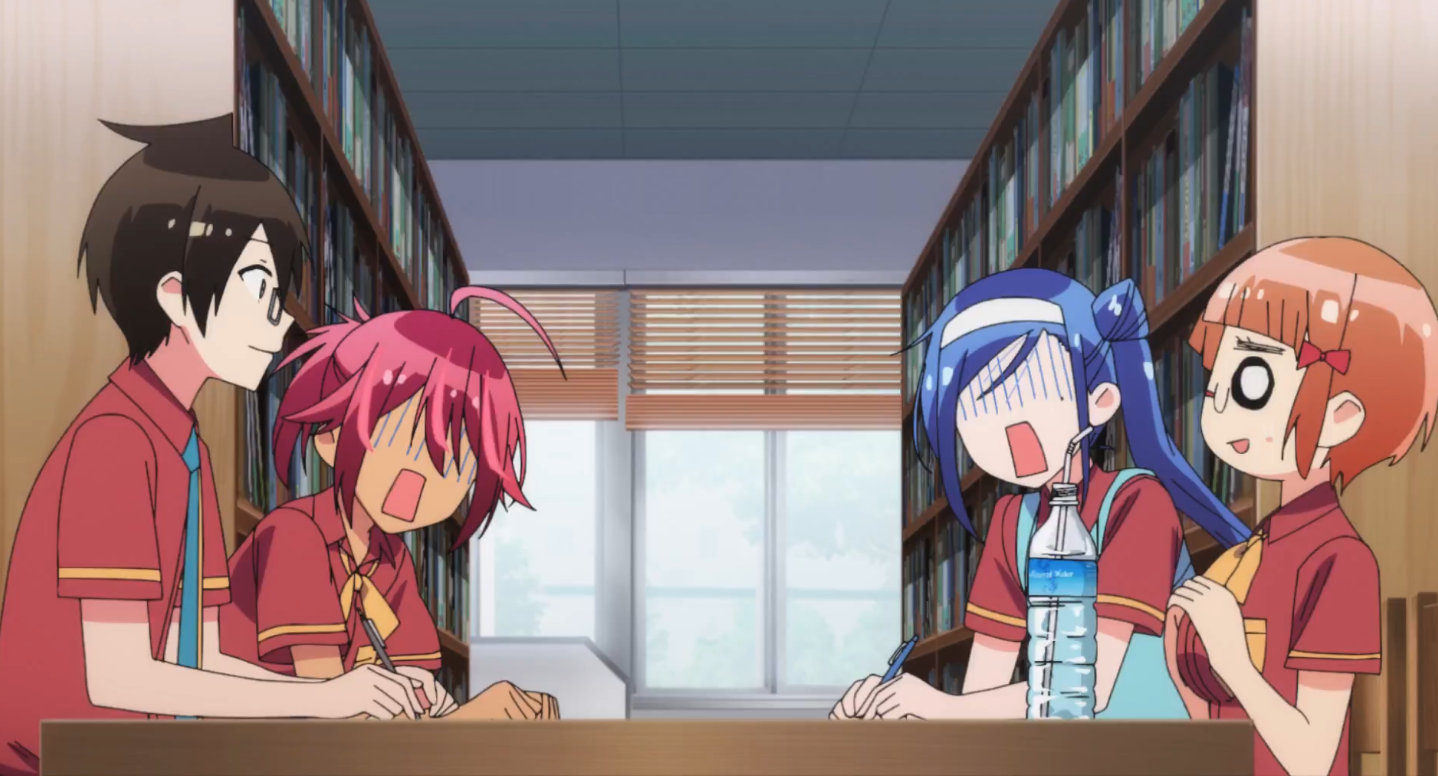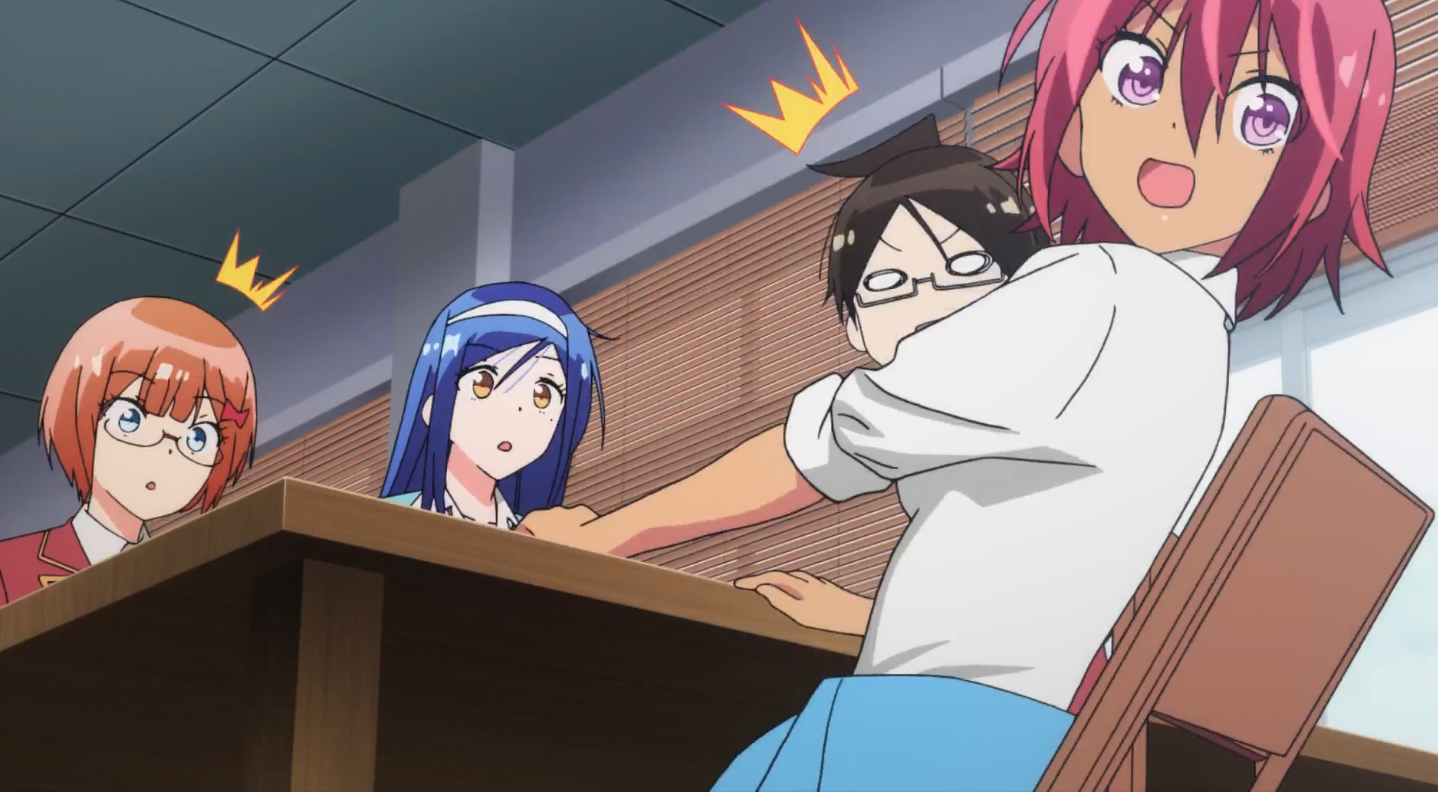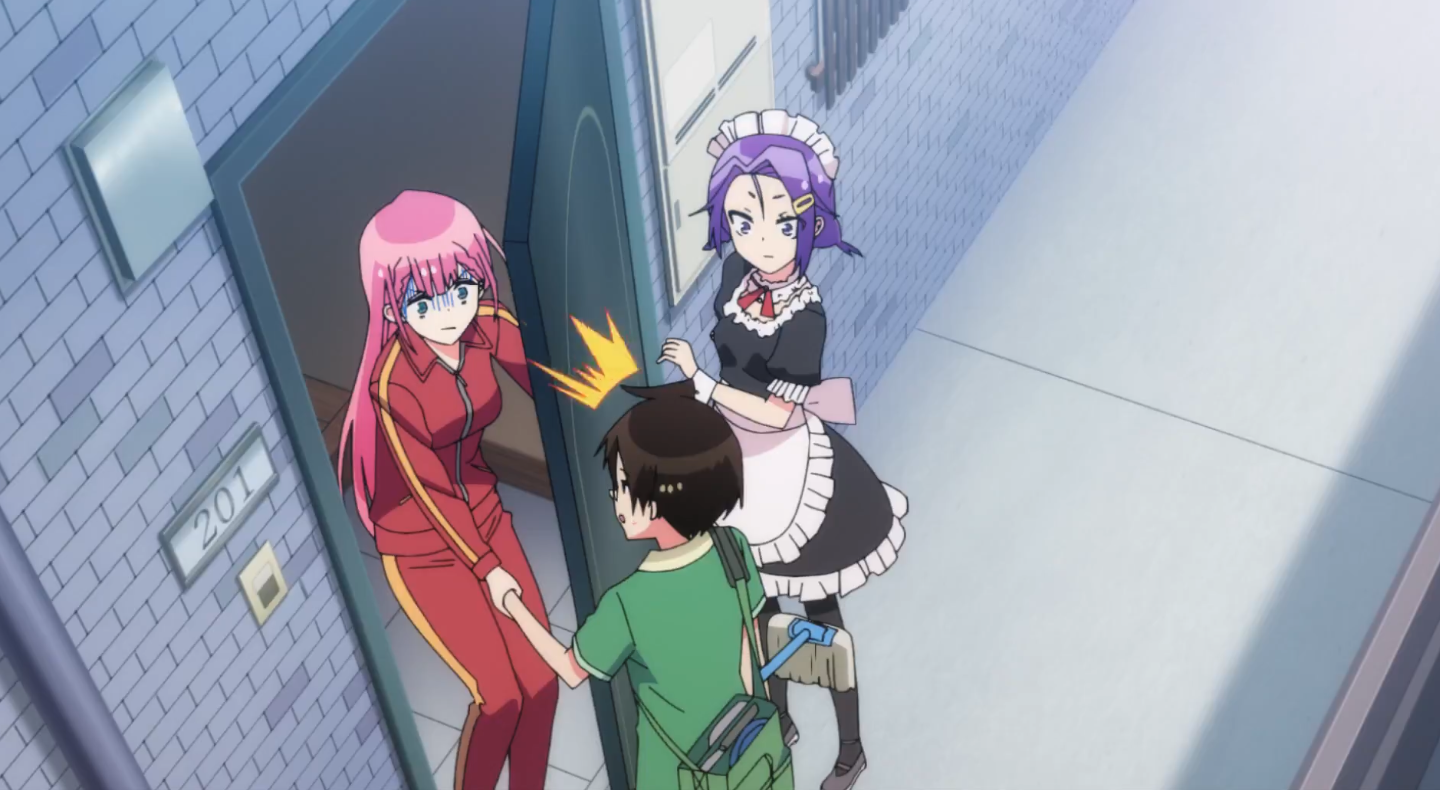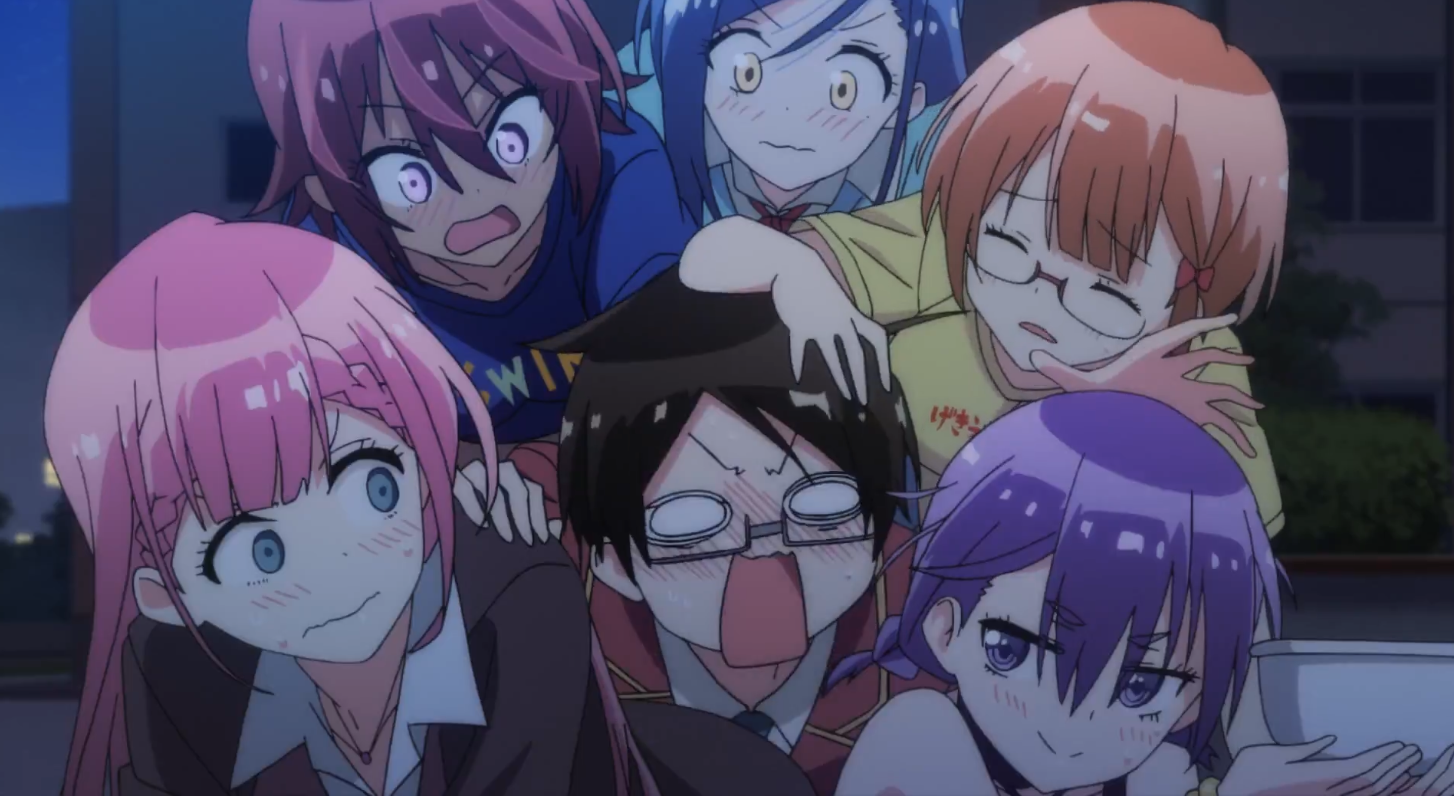
Original Run: October 6, 2019 - December 29, 2019 Number of Episodes: 13 Genre: Comedy, Harem, Romance Based on the Series Created By: Taishi Tsutsui
To read my Bokutachi wa Benkyou ga Dekinai review, please click HERE.
***Warning, the following may contain spoilers for We Never Learn Season Two. Reader discretion is advised.***
Series Synopsis
With graduation creeping ever closer, the pressure is mounting for Nariyuki Yuiga (voiced by Ryota Osaka). With his future on the line, he continues to do everything he can to ensure that his three genius pupils, Fumino Furuhashi, Uruka Takemoto, and Rizu Ogata (voiced respectively by Haruka Shiraishi, Sayumi Suzushiro, and Miyu Tomita), get into the universities they are aiming for. However, just because the work is hard, that doesn’t mean it isn’t fun.
After spending so much time with Fumino, Uruka, and Rizu, Nariyuki has grown to care for each of them. The same is true for the girls as well; more so, in fact. At differing levels of personal acceptance, Fumino, Uruka, and Rizu all have feelings for Nariyuki.
Success from their studying efforts still seems a long way off, but one thing is certain. No matter what happens, Nariyuki, Fumino, Uruka, and Rizu know they have formed an unbreakable friendship.
Series Positives
Following the conclusion of We Never Learn Season 1 (BokuBen 1), I was looking forward to seeing where season two (BokuBen 2) would go. After all, the first installment showed promise, and it had successfully shaken off the stigma of typical, no-thrills harem anime. It left its successor poised to capitalize on what had been built.
I wasn’t expecting the world from BokuBen 2, but I was expecting something different. That is why this feeling of disappointment hurts more than had this season just been bad.
The thing is, BokuBen 2 wasn’t poorly made. The animation was strong, the characters were fun, and the story was solid enough. However, it was solid in the same sense an average office building is solid. Although it may have been structurally sound, it was also a dime a dozen.
Essentially, BokuBen 2 ended up being what I thought BokuBen 1 would be.
Therefore, for the remainder of this section, I want to write this review as though season one was never a thing.
The best thing, or rather, things going for this series were its characters. This aspect alone was enough to make BokuBen an enjoyable watch. The main cast was quite large, and perhaps what was most impressive was that everyone had plenty of screen time to feel important and not forgotten. I’ve seen anime struggle with three or four lead characters, but BokuBen did wonders with its six.
Like every harem anime should be, the two halves of the harem, the center and the members, need to work, and that was something this series did with ease.
First, to have a secure center, it must make sense why this one person would have a group of admirers. Too often have I seen harem anime with a center who was some dull loser with no exceptional qualities as to why anyone would fall for them.
Keep in mind; this has nothing to do with the attractiveness of the center. It all comes down to reliability. Is the center there for the members when they are needed the most? Can a member feel secure, comfortable, and cared for when with the center? If the answer is no, then that’s a weak center.
BokuBen’s Nariyuki Yuiga was not a weak center.
Nariyuki did go out of the way to be there when his friends were in trouble. As the tutor for Fumino Furuhashi, Uruka Takemoto, and Rizu Ogata, he focused his efforts to best support their individual needs. With Nariyuki’s caring and supportive nature, it wasn’t farfetched to think that he would be popular. In the case of Mafuyu Kirisu and Asumi Kominami (voiced respectively by Lynn and Madoka Asahina), both of whom weren’t romantically interested in Nariyuki, it’s understandable why they would have developed a healthy respect for him.
Moving our focus to the members of the harem, this was the area were BokuBen took the highest care in developing, and season two especially made sure to give everyone their fair share of attention.
Fumino was still my favorite character of the series. Her level-headedness was what separated her from the two other romantic interests, Uruka and Rizu. Although she had her feelings for Nariyuki, she wouldn’t adhere to many of the stereotypical clichés associated with romantic comedies. She was quick to clear up misunderstandings, she didn’t jump to conclusions, and she knew how to read the atmosphere of a room.
Opposingly, Uruka was the more typical love-struck character. Her crush on Nariyuki was the most blatant, and consequently, she was this series’ outlet to have many of the standard romance-story tropes. She was the opposite of Fumino, and there is no problem for a show to have one of these sorts of characters.
Then there was Rizu, who was the most innocent of the romantic trio. Whereas Fumino was quick to deny her emotions, and Uruka could barely contain herself, Rizu had no concept of what she was feeling. Being romantically interested in anyone was something she had never experience before in any form, and thus, she mostly just went with the flow of any given situation.
Finally, there was Mafuyu and Asumi, and I’m going to lump them together because they were two sides of the same coin. Neither showed any romantic attachments towards Nariyuki, but they were drawn to him by many of the same qualities that attracted Fumino, Uruka, and Rizu. What distinguished the two were their personalities. Mafuyu, despite being a teacher, was a complete ditz when it came to relationships. Asumi, despite only being one year older than Nariyuki, was far more confident in herself and had as good a head on her shoulders as Fumino did.
As a group, these six were what allowed BokuBen to be an example of how a competent harem anime should work. That alone would have been fine had it not been for a single crucial point. This was BokuBen 2, and BokuBen 1 didn’t set up its successor to demonstrate how a harem anime should work. It set it up so that BokuBen 2 could show how a harem anime could be better.
Series Negatives
I stand by everything I said in the last section. BokuBen 2 had a lot of good to its name. However, it is frustrating because everything about the first season indicated it was going to go for something different in the second.
If it sounds like I am getting upset because a story didn’t go in the direction I wanted it to go in, it’s probably because I am to an extent. Now, how I think a narrative should play out isn’t grounds for criticism if it doesn’t. Again, never once did I say I didn’t like this season. I only said I was disappointed with it.
My primary criticism with BokuBen 2 is that I don’t see a reason why it exists. This season didn’t add anything new to this series. In all honesty, this felt more like a simple continuation of season one and not the next chapter in a larger story.
Let me try putting it this way. Thinking back to BokuBen 1, it spent most of its time, as it should have, establishing why Fumino, Uruka, and Rizu would develop feelings for Nariyuki. What made season one stand out was that it didn’t just set up possibilities, it built cases for each of the three girls. On top of that, some of those cases were stronger than others. And on top of that, Nariyuki himself showed signs that he was leaning towards one particular girl.
Then BokuBen 2 came along and decided to pull back everything that was pushed forward to a more equal footing. For example, Rizu was much more involved in this season compared to the ending of the last. This installment then proceeded to dedicate nearly every episode to one specific harem member. Therefore, there wasn’t any more growth with any of the characters.
BokuBen 2 was oddly stagnant, and it seemed more focused on throwing everyone in silly situations (many of which mirrored what happened in season one) instead of developing relationships.
And finally, BokuBen 2 ended in the most generically ambiguous way imaginable. What made this series so interesting was that BokuBen 1 gave the impression that it was going to make a choice, and that is something that rarely happens in harem anime. Instead, season two decided to play it safe and leave every possibility open.
UNTIL IT DIDN’T!
What kind of BS move was this show? At the end of episode thirteen, after the final credits, this series decided to backtrack on its original ambiguity and strongly suggested that a choice had been made.
Why bother being coy about it then? Why not just flat out pick a direction and stick with it? Why keep any secrecy at all to only then go “LOL, JK” right at the last second?
This felt like an unnecessary slap in the face because this moment came off as hollow, and there was no chance to appreciate what had happened. So, in a sense, I did get what I was hoping for out of this season, but it was done in the most ass-backward way imaginable. And sadly, this caused the entire series to end on fumes when it could have risen high.
Final Thoughts
I won’t lie, I did enjoy this season despite my disappointment with it. After all, perhaps it was me who expected too much.
Disregarding that, this second chapter was still a lot of fun, and it had the same great characters from the last installment. So, if you did enjoy the previous season, then there is no reason to expect you would have problems with this one.
That doesn’t change how much of a let down this season was when considering what could have been, but what’s done is done, I suppose.
Without hesitation, We Never Learn Season Two has earned a recommendation.
But these are just my thoughts. What are yours? Have you seen this series? How would you advise We Never Learn Season Two? Leave a comment down below because I would love to hear what you have to say.
And if you’ve liked what you read and want more anime content, please follow me at LofZOdyssey Anime Reviews or on Twitter @thelofzodyssey.
Also, be sure to subscribe here at The Outerhaven and never miss any of your video game, anime, and other nerdom news and content.
I’m LofZOdyssey, and I will see you next time.
Also Read: Fairy Gone 2nd Season Series Review: Well…It Wasn’t Worse




